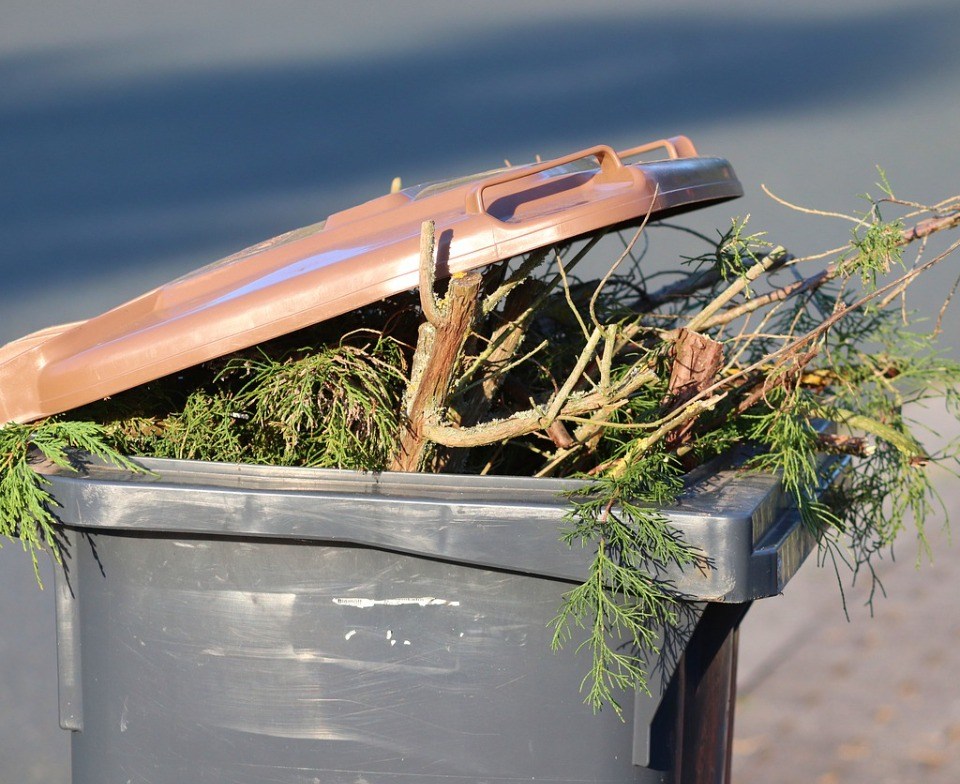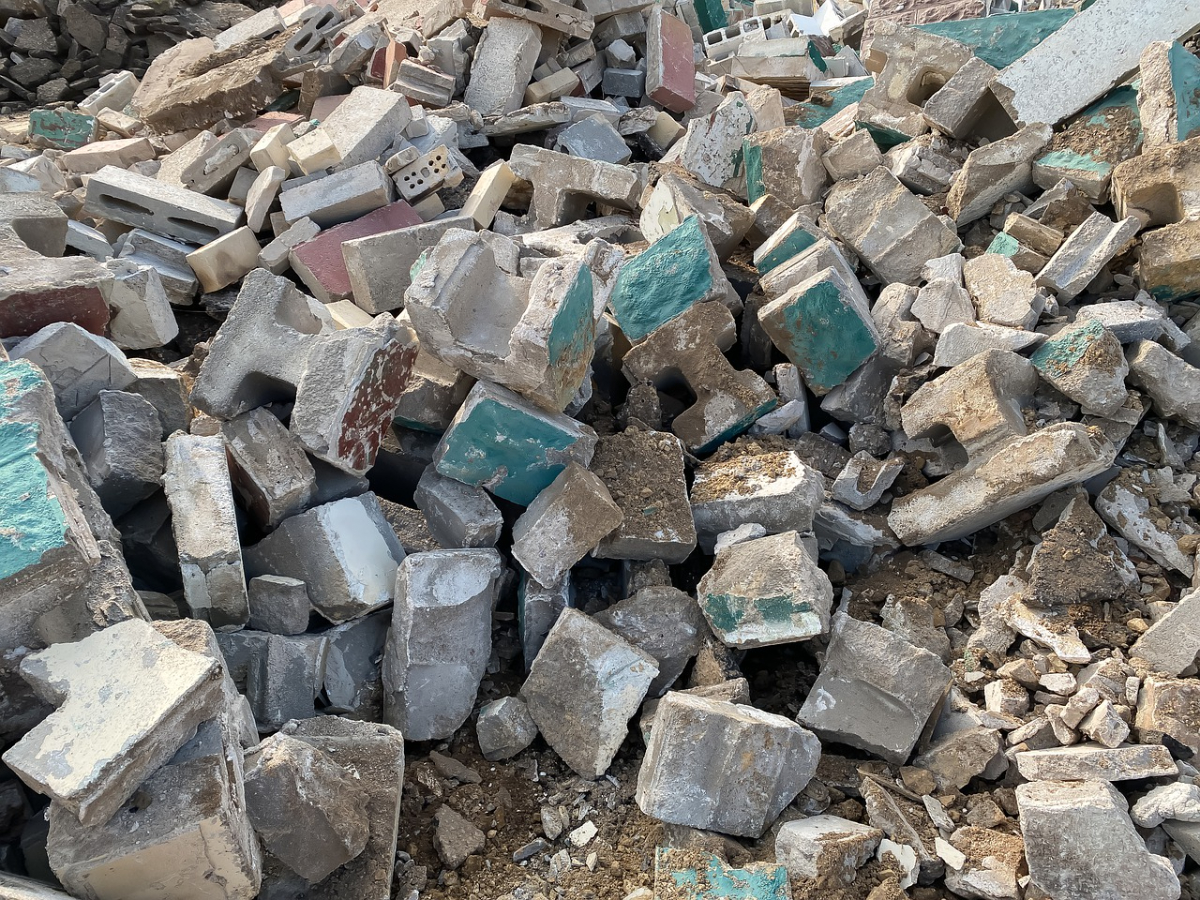Disposing of hardcore waste the right way is crucial for your safety and the environment. We provide efficient removal solutions for all heavy construction materials.
What Is Hardcore Waste?
Hardcore waste consists of solid, non-reactive materials that are produced during construction, demolition, and excavation work, such as bricks, concrete, rubble, stones, tiles, and ceramics. These materials are typically heavy and non-biodegradable, and while they don't decompose or pose chemical risks, they take up large amounts of space in landfills.
Unlike general household waste, hardcore waste doesn't contain organic matter or hazardous substances. However, its bulk and weight make it difficult and expensive to dispose of. When hardcore isn't disposed of properly, or if it's dumped, it can block drainage systems and damage natural habitats.
Managing hardcore waste responsibly typically involves separating it from other types of waste at the main site and transporting it to recycling facilities or authorised disposal sites. By treating hardcore as a potential resource, the construction industry can abide by more sustainable practices.
Types of Hardcore Waste You Can Remove
One of the most common forms of hardcore waste is bricks, which are frequently generated during demolition or renovation projects. However, these bricks can be reused in landscaping projects, or they can be crushed to form a sub-base for roads and footpaths.
Concrete is a type of hardcore waste that's commonly produced during building work, road repairs, or demolition projects. Rather than sending it to a landfill, the leftover concrete can be crushed down and repurposed as aggregate for new construction projects. This helps conserve natural resources and supports more sustainable building practices.
Tiles and ceramics are also part of the hardcore waste category. Although these materials aren't biodegradable, they are strong and durable, and they can be ground down and used as base materials for roads or pathways.

Stones and gravel are commonly found in both construction and landscaping projects. When they're removed, these materials can be cleaned and reused in other landscaping projects or as drainage layers beneath the paving.
Rubble is another category of hardcore waste that can be removed and reused. While rubble may seem like debris, it can be used as a base material for new construction or landscaping projects. Tarmac and asphalt also fall under this category, and they can be recycled and reused in resurfacing projects.
By identifying and separating these types of waste on-site, contractors can make better use of the available resources and reduce their environmental impact.
Where to Take Hardcore Waste
In the UK, disposing of hardcore waste correctly is important for the environment, and it's also required by law. There are several responsible and convenient ways to get rid of materials like bricks, concrete, rubble, tiles, and other hardcore waste.
One of the most accessible options is your local household waste recycling centre (HWRC). Most council-run sites accept small amounts of hardcore waste from residents; however, there may be a limit on how much you can bring per visit. Therefore, it's best to check with your local council before making any decisions.
For larger volumes of waste or ongoing projects, licensed waste transfer stations are an ideal solution. These facilities are equipped to handle large quantities of construction waste, including hardcore materials. They sort and process the waste, and they recycle any materials that can be reused in roadworks or building foundations.
Many waste removal companies across the UK also provide skips that are suitable for heavy materials. Some also provide grab lorry services for sites where a skip isn’t practical. Reclamation yards or reuse centres can also take reusable bricks, slabs, or paving stones, especially if they’re in good condition.
Legal Rules You Need to Follow
Hardcore waste disposal in the UK must be done in line with environmental regulations to avoid legal penalties and protect the environment. Whether you're a homeowner, a tradesperson, or a construction business, it's crucial to understand and follow the rules set by the government and local authorities.
For individuals disposing of small amounts of hardcore waste, most local councils allow visits to household waste recycling centres (HWRCs). However, there may be restrictions on the quantity and the type of materials they accept. Some sites will charge for the disposal of bricks, concrete, and tiles, so it's always best to check the guidelines before making a trip.
If you're producing hardcore waste as part of a business or trade, the waste will be classified as commercial. This means you are legally responsible for making sure the waste is stored safely, transported correctly, and is only passed on to an authorised waste carrier. Failing to do so can result in fines or prosecution.

If you’re arranging a skip hire or using a waste removal service, it’s essential to make sure the company is registered with the Environment Agency. Their license number can be verified through the agency’s official website. Additionally, you should also be given a waste transfer note, which consists of the type of waste collected, its destination, and the identity of the carrier responsible for its transport.
In summary, disposing of hardcore waste in the UK involves following local council rules and using registered waste carriers. Whether you're dealing with a few bricks or large volumes of hardcore waste, meeting these standards is essential for responsible and lawful waste management.
We provide efficient and dependable removal services for hardcore waste, including materials like bricks, concrete, and rubble. We ensure that your waste is removed properly and in line with environmental regulations and your project's requirements.


